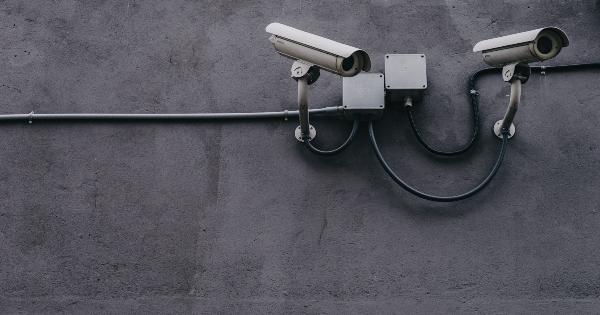Big Brother in the Workplace

By Cotney Construction Law.
So, your employees are using workplace technology for personal reasons, can you monitor their activities?
Is their social media use subject to scrutiny when using the employer’s work phone or computer? The answer is unclear, but worth delving into as there may be some tricky employment law pitfalls for employers and privacy concerns for employees. Employers need to be careful when engaging in monitoring, and employees should know to what extent their personal information is subject to that scrutiny.
With the explosive growth of social media, it is becoming more difficult to separate work time from social time. According to one New York Post article, on average employees are spending eight or more hours per week on activities unrelated to the job while they are “working.” Employees are checking their Instagram during meetings, visiting sports web pages while driving the company truck, and tweeting their thoughts at the job site. These may be seemingly innocuous activities, but they could be affecting an employer’s business. More harmful endeavors may include employees using unlicensed software or accidentally downloading viruses. In order to combat these harmful effects, are employers allowed to: monitor employee emails to make sure employees are not sharing confidential business information; review employees’ Facebook activity to ensure productivity; or check to see if employees are tweeting inappropriate content that reflects poorly on your business? Unfortunately, the answer depends on the latest law in your area of the country, but getting an employee’s consent can give an employer greater protection.
Around two-thirds of businesses monitor their employees’ internet use and nearly half monitor employee e-mail. This makes electronic monitoring a burgeoning area of law where employee privacy meets an employer’s expectation of productivity and appropriate conduct. An employer should have policies in place to govern the use of work equipment such as computers, phones, or tablets to avoid the privacy concerns that pervade employment law in the technological age. These policies are a useful tool to make it clear to employees what conduct is acceptable and what is not. Clear rules help avoid conflict and litigation.
However, there are some dangers to monitoring and controlling workplace social media usage. Namely, workplace privacy concerns. The Electronic Communications Privacy Act (“ECPA”) protects electronic communications from being intercepted, yet it provides some important exceptions that apply in the workplace. The first exception is consent. If an employer receives consent to monitor all communications on all company devices then this avoids the hurdle of the ECPA. The next exception is the business extension exemption. This typically requires a legitimate business purpose for monitoring like preserving confidential business information, which can include pricing information, client lists, and trade secrets. On the opposite end, once an employer determines that a phone call is personal there is no legitimate business reason to continue to monitor the call.
As part of the ECPA there is the Stored Communications Act (“SCA”). The SCA concerns the access of stored electronic communications. The SCA has two exceptions: the consent exception and the provider exception. The provider exception allows an employer who maintains a company email to access or monitor stored emails. A word of caution is that the extent of information that can be gathered has not been fully settled. It may only include data about the communications and not the communications themselves. Consent is preferable when accessing stored data even when on work servers.
The key to legally reviewing stored data is whether an employee believes he or she has an expectation of privacy. Generally, the courts have held it has to be decided on a case-by-case basis. The Fourth Amendment to the Constitution prohibits unreasonable searches and seizures, but only as to the government and not to private industry and may provide insight into employee monitoring. A recent U.S. Supreme Court case found that the subject government employer created an expectation of privacy in phone messages where the employee owned the phone but the employer reimbursed the cell phone costs. City of Ontario, Cal. v. Quon, 560 U.S. 746 (2010). This same standard could also apply in the private sector.
Additionally, some states have applied general privacy statutes to workplace monitoring. In Massachusetts for instances, a “person shall have a right against unreasonable, substantial or serious interference with his privacy.” When interpreting that statute, a Court found that there was a fact question as to whether the employee had a privacy expectation in personal e-mails sent over the company e-mail system, which were stored on the server, and later reviewed by a supervisor. The Court pointed out that there was no company policy against using the system for personal messages and while storing the e-mails was appropriate, the reading of them by the employer is what may have been an invasion of privacy.
Social media access at work is a growing concern. There is a divide as to whether an employer can use devices to record the key strokes on an employee’s computer allowing the employer to log into personal e-mails, and social sites like Facebook and Twitter. This practice is becoming increasingly commonplace, but certainly affects employee morale. In the alternative, other employers are opting to create social media policies, or asking for the passwords to those accounts to ensure proper conduct as to workplace comments, prevent harassment, or track criminal activities. However, the control of social media comments may implicate the National Labor Relations Board in terms of concerted activity of employees. Namely, an employer cannot prevent employees from discussing terms and conditions of employment with other employees, even though it is openly on social media.
This area of employment law is complex and full of perils for both employers and employees. For that reason, it is crucial to have workplace rules that specify when monitoring will happen, and when the employee has an expectation of privacy. The best option for an employer is to require consent to the monitoring of work devices. This should eliminate any grey area and provide the employee with notice that their privacy may be limited. Certain policies that the employer should have include: an electronic communication policy; a social media policy; a bring your own device policy; a confidentiality policy; a non-disclosure policy, and a written information security program. These policies should state unequivocally that the employee has no reasonable expectation of privacy on workplace devices; such information may be disclosed for purposes of investigation, litigation, internal dispute resolution, or other legitimate business purpose; and that the employee must adhere to the Company’s Code of Conduct as to social media posts. Employers should consider contacting an attorney to determine the best policies for their business and how they can be implemented to protect the employer and employee.
Author’s note: The information contained in this article is for general educational information only. This information does not constitute legal advice, is not intended to constitute legal advice, nor should it be relied upon as legal advice for your specific factual pattern or situation.
Cotney Construction Law is an advocate for the roofing industry and General Counsel of Western States Roofing Contractors Association (WSRCA). For more information, go to www.cotneycl.com.
Read the original article: Western Roofing Magazine, Jan 14, 2019






















Comments
Leave a Reply
Have an account? Login to leave a comment!
Sign In